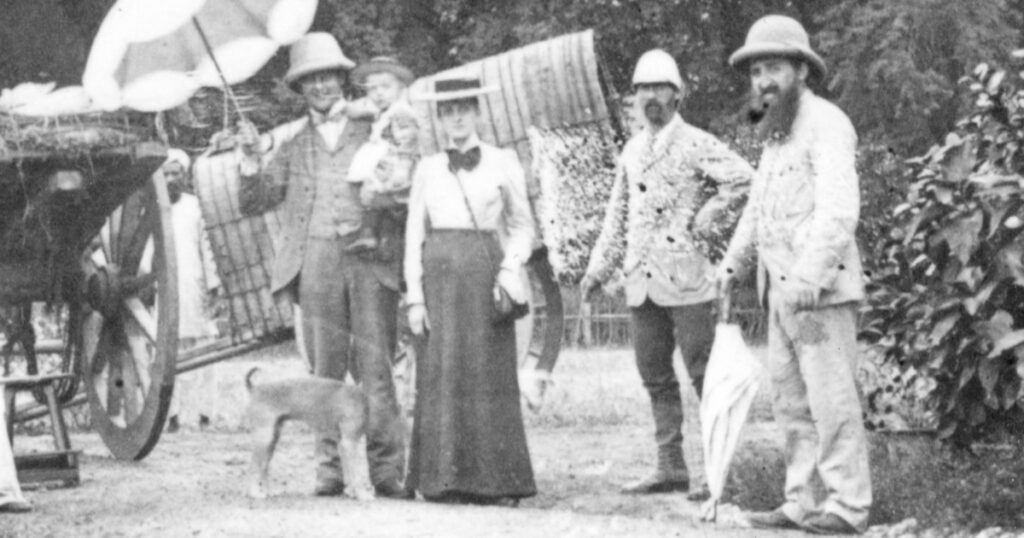by David H. Petersen
At the popular level, in a semi-secular sense, an American Thanksgiving is meant to remind us that we are dependent upon God, or something like God. Ingratitude is distasteful. Instead, therefore, Americans should be thankful to something for body and soul, eyes, ears, and all the stuff needed for earthly life. It is the duty of all decent people to be thankful.
That sentiment is not contrary to Christianity, but it is certainly not Christianity itself. The fuller reality is that without the mercy of the Holy Trinity we would not only be dead; we would be damned to Hell. From a biblical perspective, if body and soul, house and home, wife and children, and the like are to bring us any real satisfaction or joy we must first reckon with the punishment that our sins deserve. Without mercy, without forgiveness and grace, without Christ, there is nothing much to give thanks for since it is all going to be destroyed or sent to perdition.
Thus the biblical call for thanksgiving, which finds its way into Divine Service III (LSB, p. 201) and also into the readings for Thanksgiving Day: O give thanks unto the Lord for He is good. And His mercy endureth forever.
This particular call to thanksgiving, “O give thanks unto the Lord for He is good. And His mercy endureth forever,” shows up six different times in the Bible: in 1 Chronicles 16:34 and in Psalms 106:1; 107:1; 118:1, 29; and 136:1. It is programmatic for us. It is what we do. We give thanks for the particular goodness of God’s mercy.
The Lord’s goodness isn’t simply a matter of His morality or decency or competence, as though He were simply a good God or good at being God. His goodness is His mercy. The Good Shepherd lays down His life for the life of the world. That sacrifice is His competence and morality, in a sense; that is, He can do and does this because He is God. But more to the point, judged in the ways of men, this sacrifice is somewhat insane. What rancher dies for his cows? What vineyard owner pays workers for not working?
The point that Jesus makes in calling Himself the Good Shepherd is not that He is good at being a shepherd, that He brings a lot of sheep to market for wool or understands how to be a shepherd, but rather that He is good for us. He is good for the sheep. He dies for His sheep because His mercy endures forever. That is His goodness.
Whatever unsung and unknown Englishman coined the phrase “Good Friday” for the day of the Cross was probably the best theologian in the history of Englishmen. Here we Lutherans must step back and admit with uncharacteristic humility that English serves better than the German or Latin. Good Friday is good not because the day is lovely with the sun shining and birds singing or because all of our family is back home and gathered around the table for a feast and no one is yet fighting; rather, Good Friday is good because it is good for us. It is the day of God’s mercy, the day of atonement and salvation.
That is the goodness of Good Friday, the goodness that colors the words of the Psalm in the cry after Holy Communion. The minister says, “O give thanks unto the Lord for He is good.” He is not at this point calling upon us to thank God for daily bread or for all the things we need for this bodily life. Rather he is calling us to thank God for the peculiar mercy that He has bestowed upon us in the Holy Communion by giving us the risen Body and Blood of Jesus. The congregation’s response is almost a corrective, or at least it is a reminder of this. The laity don’t want the minister to forget the rest of the sentence or the character of the Lord’s goodness. Here is the very reason we can give thanks at all, in any situation. Here is the definition of His goodness that elicits our thanks: “His mercy endureth forever.”
The goodness of God that loved us to the end, the mercy which sent a Substitute and Atonement in the person of His Son in our flesh to die our death and win us back for Himself, is the fount of Christian thanksgiving. God does not punish us as the Law would demand. Instead, He has mercy on us for Christ’s sake. He welcomes us to Himself and feeds us with His own Body and Blood for the forgiveness of our sins.
Luther teaches us to look upon the gifts of creation in this way. He teaches us in the Small Catechism that God gives us all the stuff we need for this body and life “only out of Fatherly Divine goodness and mercy without any merit or worthiness in us.”
However we celebrate Thanksgiving, with our families, our neighbors, or even alone, let it be with this in mind: We give thanks to the Lord whose mercy endures forever.
The Rev. David H. Petersen is the pastor of Redeemer Lutheran Church in Fort Wayne, Ind.







I must push back a little against your conclusion that “It is the duty of all decent people to be thankful” is not “contrary to Christianity, but it is certainly not Christianity itself.” Your statement could be read by certain hyper-Calvinist types as implying that indecent people have no duty to be thankful (because they are predestined to damnation).
We must be crystal clear. All people whether decent or indecent are without excuse for their failure to give thanks to God (Romans 1:20-21). The same law that condemns the decent condemns the indecent (Romans 3:9). God does not want anyone to perish but it is His manifest will that all people come to repentance (2 Peter 3:9).